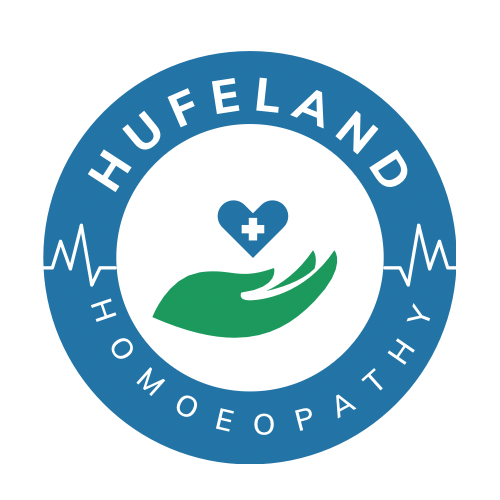- Fathima Roshni N

- Sep 11, 2025
- 4 min read
Hayfever, also known as allergic rhinitis, is a common condition affecting millions of individuals worldwide. Caused primarily by pollen, dust, and other allergens, it can significantly disrupt a person's quality of life. Understanding the medical and homeopathic approaches to managing this condition can empower patients to tackle their symptoms proactively.
Understanding Hayfever: Pathophysiology and Causes
Hayfever occurs when the immune system overreacts to airborne allergens. This exaggerated response involves the activation of immune cells, leading to the release of histamine and other chemicals. Histamine dilates blood vessels and increases mucus production, resulting in inflammation and the range of symptoms we typically associate with hayfever.
The primary triggers for hayfever include:
Pollen: Trees, grasses, and weeds release tiny pollen particles that can cause reactions.
Dust Mites: Microscopic organisms found in household dust can be potent allergens.
Mold Spores: Mold growth, especially in damp areas, can be another source of allergens.
Animal Dander: Skin flakes from pets can also trigger allergic responses.

Recognizing Symptoms of Hayfever
Symptoms of hayfever vary in intensity and can range from mild to debilitating. Common symptoms include:
Sneezing: A hallmark of hayfever that serves as the body's way of clearing allergens.
Itchy Eyes, Nose, or Throat: These discomforts can affect concentration and quality of life.
Runny or Stuffy Nose: The increased mucus production can lead to a feeling of congestion.
Fatigue: The body's immune response can be exhausting, leading to tiredness.
Identifying these symptoms early can aid in effective management.
Types of Hayfever
Hayfever can be categorized based on its triggers and the time of year it occurs:
Seasonal Allergic Rhinitis: Often referred to as "hayfever", this type is triggered by pollen and typically occurs in spring and summer.
Perennial Allergic Rhinitis: This continuous form can be caused by indoor allergens, such as dust mites or pet dander, and occurs year-round.
Understanding the type can help patients take preventive measures and seek appropriate treatment.
Prevention and Diagnosis
Preventing hayfever starts with identifying and minimizing exposure to allergens. Here are some actionable tips for prevention:
Stay Indoors: During high pollen counts, limit outdoor activities, especially in the morning.
Use Air Purifiers: These can help filter out allergens in your home.
Regular Cleaning: Clean your living space regularly to reduce dust mites and mold.
Cover Pillows and Mattresses: Use allergen-proof covers to minimize exposure to dust mites.
Diagnosis of hayfever usually involves a detailed medical history and symptom review, often accompanied by skin and blood tests to identify specific allergens.

Treatment Approaches for Hayfever
Medical Treatments
Medical approaches to managing hayfever focus on alleviating symptoms and include:
Antihistamines: These medications block histamine receptors and reduce symptoms. Common examples include cetirizine and loratadine.
Decongestants: These can relieve nasal congestion but should be used short-term due to potential side effects.
Nasal Corticosteroids: Recommended for moderate to severe symptoms, these can effectively reduce inflammation and relieve symptoms.
Allergy Shots (Immunotherapy): For long-term relief, immunotherapy involves gradual exposure to allergens, helping the body build resilience over time.
Homeopathic Management of Hayfever
Homeopathy offers a different perspective on treating hayfever, focusing on the individual's overall well-being rather than just the symptoms. Here are ten commonly recommended homeopathic remedies for managing hayfever:
Allium Cepa: Best for those suffering from a runny nose that causes burning and watery discharge.
Sabadilla: Useful for sneezing and an itchy, watery nose.
Euphrasia: Ideal for treating symptoms involving itchy and watery eyes.
Arsenicum Album: For individuals experiencing burning sensations in the nose with a lot of sneezing.
Histaminum: Specifically targeted for symptoms exacerbated by allergens.
Nux Vomica: Helps if the person is feeling irritated and restless due to hayfever symptoms.
Luffa Operculata: Effective for nasal congestion and clear, watery discharge.
Ambrosia: Particularly recommended during pollen season for its specific action on hayfever symptoms.
Aconitum Napellus: Useful for sudden onset symptoms often triggered by weather changes.
10. Sulphur: Helpful for individuals who suffer from chronic hayfever with accompanying skin symptoms.
Exploring these remedies with a trained homeopath can provide patients with individualized treatment plans, increasing the odds of successful symptom management.

Final Thoughts on Managing Hayfever
Managing hayfever necessitates a comprehensive understanding of both medical and homeopathic perspectives. By taking proactive measures—such as identifying triggers, adopting preventive strategies, and seeking appropriate treatments—patients can significantly improve their quality of life.
If you or someone you know struggles with hayfever, consider exploring both medical and homeopathic options. A tailored approach based on personal health needs can bring about effective relief. Seeking guidance from healthcare professionals is essential for ensuring the best management strategies tailored to individual symptoms.
In understanding the complexities of hayfever—from its causes and symptoms to prevention and treatment—patients can feel empowered. By choosing a well-rounded approach, they can navigate this challenging condition more effectively.
For more detailed information on treatment and management options, you can refer to the following resource: [Link to additional resources] where more specific advice is available.


📝
Hey 👋 I would love to have a quick chat with the store owner, kindly inbox me now! It very urgent!...thank you